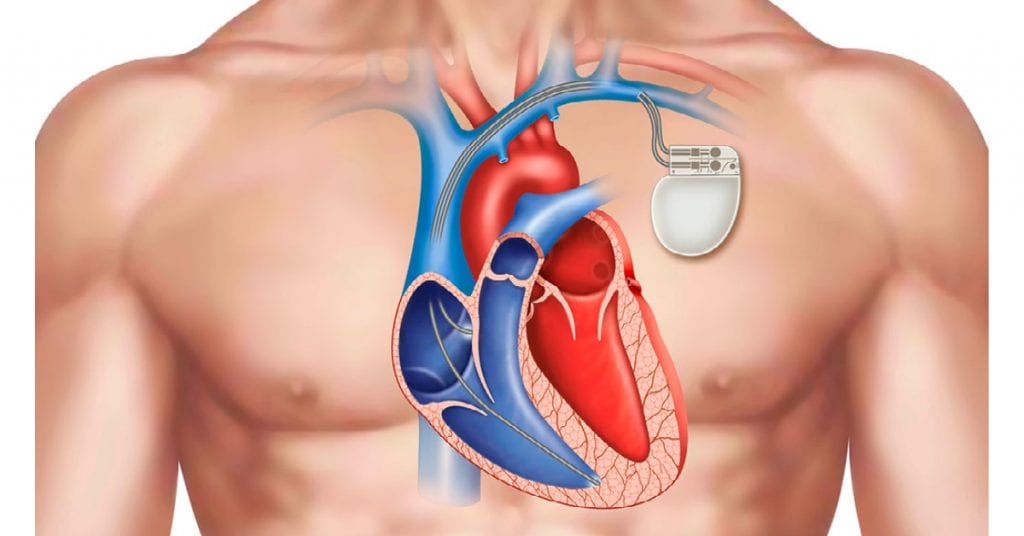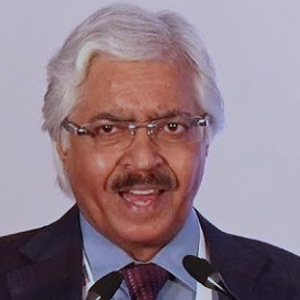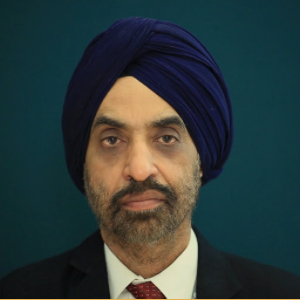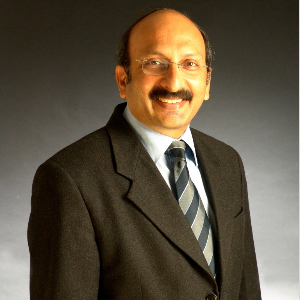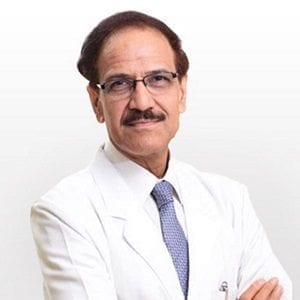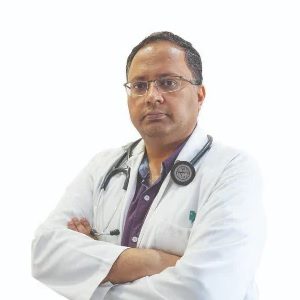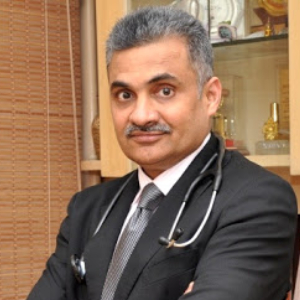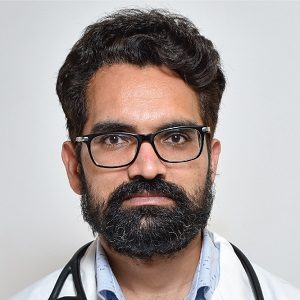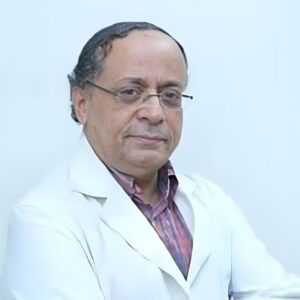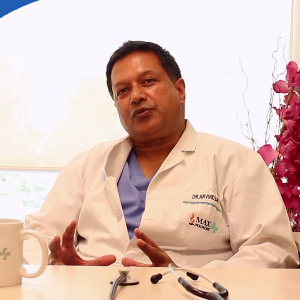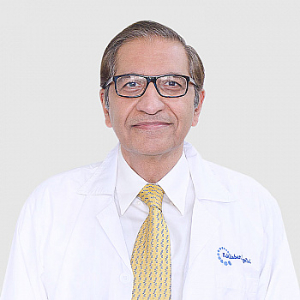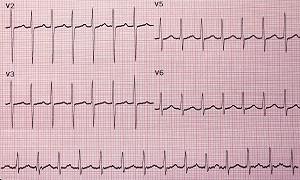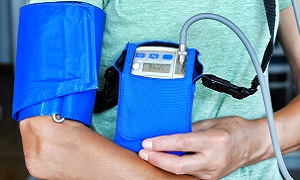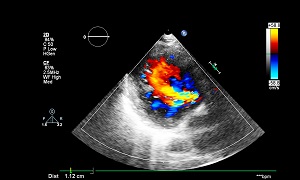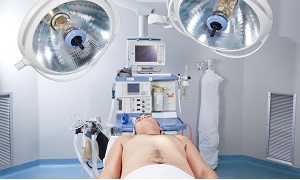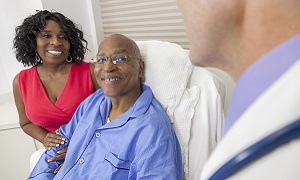Cost of Permanent Pacemaker Implantation in India
| Treatment | Cost | Days in hospital | Days outside hospital | Total stay in India |
|---|---|---|---|---|
| Permanent Pacemaker Implant - Single Chamber | USD 3000-4000 approx. | 3 | 7 | 10 |
| Permanent Pacemaker Implant - Double Chamber | USD 4000-5000 approx. | 3 | 7 | 10 |
| Permanent Pacemaker Implant - Biventricular | USD 13000-16000 approx. | 3 | 7 | 10 |
Have questions? Discuss with us.
Contact Us
Best Cardiologists in India for Pacemaker Implantation
- Interventional Cardiologist, New Delhi, India
- Over 35 years’ experience
- Fortis Escorts Heart Institute New Delhi
Profile Highlights:
- Dr. Ashok Seth is one of the most well-known Interventional Cardiologists in India honored with both the Padma Shri and Padma Bhushan by the Government of India.
- With over 35 years in interventional cardiology, Dr. Seth has pioneered numerous angioplasty techniques in India and the Asia Pacific region.
- He has performed over 20, 000 angioplasties and 50,000 angiograms till date.
- Dr. Seth holds a Fellowship of the Royal College of Physicians of Ireland, London, and Edinburgh along with several other degrees to his name.
- Cardiologist, New Delhi, India
- Over 34 years’ experience
- Max Super Specialty Hospital, Saket, New Delhi
Profile Highlights:
- Dr. Balbir Singh is a reputed cardiologist with over 32 years of experience, who is considered a veteran in his field, both nationally and internationally.
- He has also pioneered several minimally invasive cardiology surgical techniques in India and has been honored with the prestigious Padma Shree Award for his exceptional performance.
- “LIMCA” Book of Records also highlighted Dr. Balbir Singh’s contribution to the medical field in the Indian Electrophysiology Journal.
- Interventional Cardiologist, Gurugram, India
- Over 30 years’ experience
- Medanta-The Medicity, Gurgaon
Profile Highlights:
- Dr. Praveen Chandra is one of the most well-known and respected Interventional Cardiologists in India and performs over 5000 percutaneous and diagnostic interventions every year.
- He specializes in devising techniques that help minimize open surgeries. He performed the first Percutaneous Aortic Valve implantation without surgery in India.
- He also developed techniques to reduce the number of patients requiring bypass surgeries and has been trying to make angioplasty techniques more accurate to help with the treatment of multiple blocked arteries.
- Interventional Cardiologist, New Delhi, India
- Over 30 years’ experience
- BLK Super Specialty Hospital, New Delhi
Profile Highlights:
- Dr. Subhas Chandra is a leading Interventional Cardiologist in Delhi presently associated with BLK-Max Super Speciality Hospital as the Chairman and Head of Cardiology.
- He has over 30 years of experience and specializes in coronary interventions, endovascular interventions, device implantation, and structural heart diseases.
- He has performed more than 25,000 coronary interventions (complex angioplasty and rotablation), 4000+ for structural heart diseases, and has done more than 3000 permanent pacemaker implants.
- Dr. Chandra’s knowledge of interventional cardiology is enormous and he has served both as a consultant and teacher of cardiology in some of the most prestigious medical hospitals and colleges in India.
- Interventional Cardiologist, New Delhi, India
- Over 23 years experience
- Indraprastha Apollo Hospital, New Delhi
Profile Highlights:
- Dr. Amit Mittal is a cardiologist working at Indraprastha Apollo Hospital in New Delhi with experience of over 23 years in Interventional Cardiology.
- He is good to consult for Angiogram, Angioplasty, and Bypass Surgery. Dr. Mittal has performed over 15,000 cardiac procedures till now. He offers services like EPS and RFA procedures, pacemaker implantation, ECG, complex surgery of heart valve replacement, and angina treatment, to name a few.
- Apart from that, Dr. Mittal won a Gold medal in MBBS 1st y and for the highest marks in obstetrics and gynecology. He published many papers in national and international medical journals and chapters in textbooks.
- Interventional Cardiologist, New Delhi, India
- Over 20 years’ experience
- Fortis Escorts Heart Institute New Delhi
Profile Highlights:
- Dr. Praveer Aggarwal is a nationally acclaimed and highly professional Interventional Cardiologist.
- His specialization lies in the treatment of blockages of the coronary and peripheral arteries and is an expert in Rotational and Directional atherectomy, intravascular ultrasound, pressure wire, and the use of Drug Eluting Stents.
- Along with his team at Fortis Escorts Heart Institute, Dr. Aggarwal performs close to 2000 angiographies and over 2000 coronary interventions including coronary angioplasties every year.
- Interventional Cardiologist, Gurugram, India
- Over 10 years’ experience
- Fortis Memorial Research Institute
Profile Highlights:
- Dr. Jagdeep Yadav is one of the best cardiac surgeons in Gurugram. He is particularly interested in non-coronary therapies such as peripheral interventions and device closures.
- Dr. Jagdeep Yadav is skilled in using modern techniques in interventional cardiology and non-invasive cardiology procedures. He employs cutting-edge technologies such as IVUS, OCT, FFR, and IVL to make life better in complex cardiac therapies.
- Cardiologist, Hyderabad, India
- Over 25 Years Experience
- Apollo Hyderabad
Profile Highlights:
- Dr. Sunil Kapoor is a renowned cardiologist in Hyderabad with an impressive career of over 20 years. He is currently associated with Apollo Health City, Hyderabad where he is serving as a Senior Consultant Cardiologist.
- Dr. Kapoor specializes in treating a range of cardiac ailments like heart failure, hypertension, coronary and peripheral artery disorders, palpitations, cardiac arrhythmias, abrupt aortic dissection, and irregular heartbeat, among others.
- Additionally, he is also an expert in handling complex and high-risk procedures such as Angioplasties, Pacemaker Implantation, and Transcatheter Aortic Valve Implantation/Replacement (TAVI/TAVR).
- Preventive care for heart and lung disorders, including therapy for cardiovascular problems before surgery, is another area of expertise for Dr. Sunil Kapoor.
- With several publications to his credit and affiliations in prestigious medical associations such as the American College of Cardiology, Dr. Sunil Kapoor’s contributions to the field of cardiology go way beyond clinical practice.
- His patient-centric approach has earned him an outstanding reputation in the field of cardiology. He is known to provide individualized care to all his patients catering to their specific requirements.
- Interventional Cardiologist, New Delhi, India
- Over 24 years’ experience
- Max Super Specialty Hospital, Saket, New Delhi
Profile Highlights:
- Dr. Arvind Das is an interventional cardiologist with expertise in all kinds of coronary and non-coronary interventions and electrophysiology.
- Dr. Arvind Das received his fellowship training in pacing and electrophysiology from the renowned Royal Melbourne Hospital in Australia. He has undergone training at Semelweiss Heart Centre, Budapest for Device Implantation.
- Dr. Arvind Das has years of knowledge and experience in various cardiac procedures and provides the best diagnostic and therapeutic treatment for all types of heart diseases and disorders.
- Interventional Cardiologist, Mumbai, India
- Over 45 years’ experience
- Kokilaben Dhirubhai Ambani Hospital
Profile Highlights:
- Dr. Jamshed Dalal is a well-known Interventional Cardiologist who has over 45+ years of experience and specializes in Adult Interventional Cardiology.
- Dr. Jamshed Dalal is a highly recommended cardiologist for Angiography and performed his first coronary angiography in the year 1978 in UK.
- He specializes in various kinds of coronary and peripheral cardiac procedures and carries immense expertise in Angioplasty, intravascular ultrasound, Pacemaker Implantation, and FFR.
KNOW THE PROCEDURE!
Pacemaker Implantation
Pacemaker is a small device that is implanted under the skin in the chest which monitors the heartbeat & controls the heart rhythm.
A pacemaker has two parts:
1. The pulse generator- This is small metal container that houses the battery & the electrical circuit that regulates the rate of electrical pulses sent to the heart.
2. Electrodes or leads- They are insulated wires placed in the heart chambers which delivers electrical pulses to adjust the heart rate.
Types of Pacemakers
There are three types of Pacemakers:
- Single Chamber Pacemaker- They carry electrical impulses from the generator to the right ventricle of the heart.
- Dual Chamber Pacemaker- They carry electrical impulses from the generator to the right atrium & right ventricle, both.
- Biventricular Pacemaker- They simulate the right & left ventricles both, so that the heart beats more efficiently. It is a treatment option for people suffering from heart failure.
Indications for Pacemaker
Pacemakers are used to treat the following:
- Cardiomyopathy
- Heart failure
- Slow heart rhythms also known as bradyarrythmia.
- Syncope
Tests done before Pacemaker Implantation
Electrocardiogram
Holter Monitoring
Echocardiogram
Stress Test
Pacemaker Implantation procedure
Before the procedure
During the procedure
Pacemakers are implanted in 2 ways:
- Endocardial approach- This approach is commonly used for pacemaker implantation. In this approach, local anaesthesia is administered to numb the area where an incision is made. Through an incision the lead is inserted into a vein, then advanced to the heart with the help of the x-ray machine. One end of the lead is attached to the heart muscle, while the other end of the lead is attached to the pulse generator, which is placed in a pocket created under the skin in the upper chest.
- Epicardial approach- This approach is commonly used in children. In this approach, general anaesthesia is administered. One end of the lead is attached to the heart muscle, while the other end of the lead is attached to the pulse generator, which is placed in a pocket created under the skin in the abdomen.
After the procedure
Special precautions
- Avoid placing the cell phone directly over the pacemaker implantation site when the phone is turned on.
- Avoid leaning against a metal-detection system.
- If a doctor is considering any medical procedure that involves intensive exposure to electromagnetic energy like magnetic resonance imaging, therapeutic radiation for cancer treatment, tell him /her about the pacemaker implanted.
- Stand at least 2 feet from welding equipment, high-voltage transformers or motor-generator systems.
FAQs
The recovery time for a pacemaker surgery is 3-4 weeks.
It is safe to use a mobile phone, but make sure it is kept at a distance of more than 6 inches from the pacemaker.
Most pacemaker batteries last for 6 to 10 years.
The follow- up appointments may be every 3 to 12 months, depending on the type of pacemaker you have and how well it works

